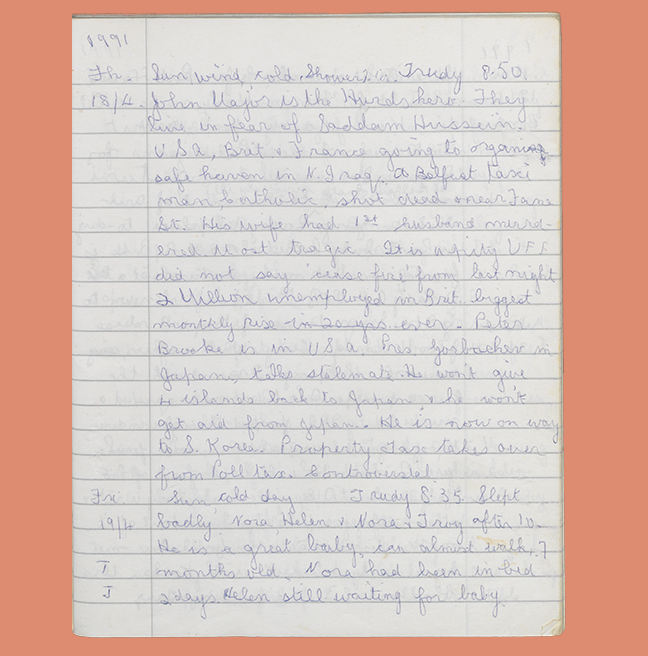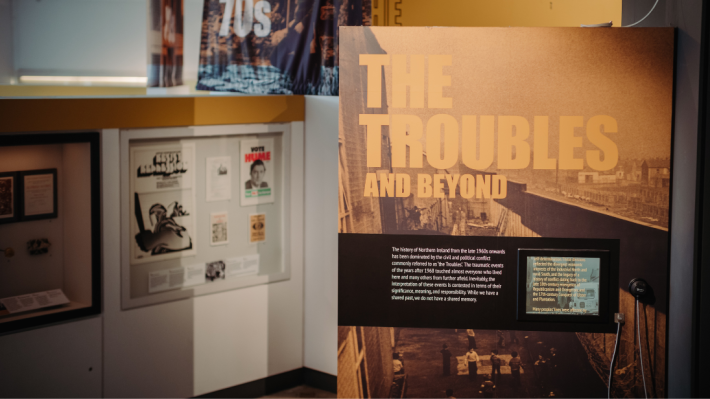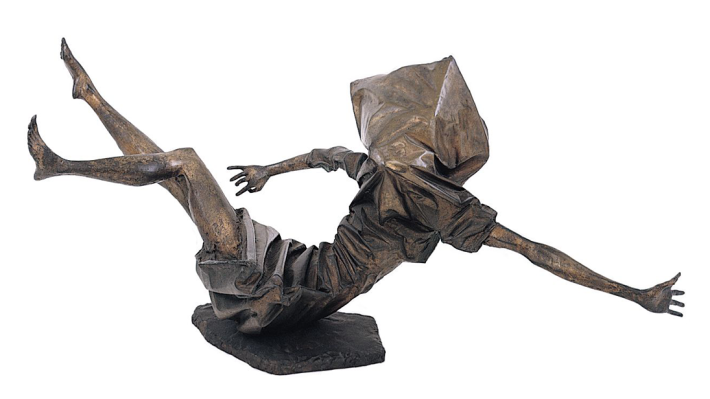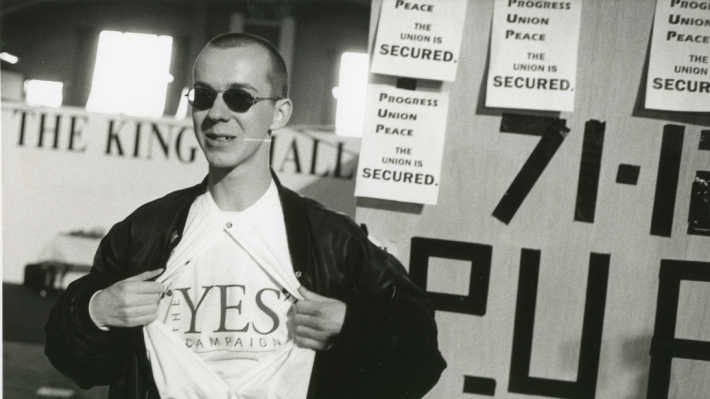
The Diary Keeper
Born in Belfast on 20 May 1912, Elizabeth Wright, fondly known as Lily, meticulously kept a diary that documented her life in Belfast between 1930–1991.
Donation
We recently received a donation of over 75 of Lily's diaries which we’re in the process of organising by year and packing for better storage. Throughout the process, we’ve been reading through her entries to learn more about who Lily was, what her interests were and what she liked to write about. Turns out ‘The Price is Right’ was a big hit!

Lily included many aspects of her life in these diaries; from everyday things such as the weather to the more glamorous details of her brother's television appearances. We’re slowly piecing together her history through her beautiful inscription on the pages.
Health
Lily contracted polio at the age of 13, affecting her handwriting and mobility. By the time she was 70, she was suffering from Parkinson’s but continued to write in her diaries, apologising to her readers for her handwriting. She placed her menus from hospital visits in her diaries, and kept a separate notebook from time to time to record how her symptoms developed. Even when she was ill, she made a continual effort to remain in contact with daily events, her brother’s show business progress and the Presbyterian Church, attending their Christmas celebrations as regularly as possible.
Musings
Lily appeared light-hearted, wishing everyone a ‘Merry Christmas’ in December in her own diaries, and musing about why ‘the young people’ would storm a football match in England when Aston Villa was playing. Pressed between the pages of her diaries, she kept wedding invitations from her nieces and nephews, letters to her doctor and friends, and photos of herself from various ages.
The Troubles
On the other hand, Lily diligently recorded the more tragic events happening around her. When the Troubles started, she watched the daily news and recorded the numbers of deaths; how they died and where.

On October 10th 1976, she refers to ‘a young lad hit by a plastic bullet,’ thought to be 13 year old Brian Stewards. She wrote about ‘Mrs. Thatcher,’ press conferences occurring in Northern Ireland and peace marches. In particular, she followed ‘2 Peace Women,’ thought to be Betty Williams and Mairead Corrigan. These two women, who later won the Nobel Peace Prize, started a non-violent movement in response to the death of Anne Maguire, Mairead’s sister, when her three children were killed by a car after the driver was shot dead by the British Army.

Lily rarely wrote her own opinions, documenting the events with a fact-based approach. We appreciated that she could give us a more comprehensive understanding of how life had to continue despite the conflict, and further adding to our constantly evolving Troubles and Beyond exhibition.
Global News
Despite the unrest she faced on a daily basis, Lily maintained an interest in global events. She recalled the way ‘Rhodesia’, as Zimbabwe was then known, was treated and governed by the British Empire, and the moment it gained independence.
In her later diaries, she closely followed the first Gulf War, even addressing Saddam Hussein in 1991 in her writing: ‘I wish everyone a Happy New Year, especially Saddam Hussein. If everyone is happy, then there won’t be war and everybody wants that.’
Living history
Lily Wright and the donation of her diaries marks an important contribution to the continually developing contemporary collection at the Ulster Museum. We are still reading through her diaries and hope to learn more about her life and insights.
Explore more
The Troubles and Beyond
The history of Northern Ireland from the late 1960s to the present day
Troubles Art
Explore a range of responses to the Troubles by artists from Northern Ireland and beyond.
The pathway to peace and reconciliation
May 2023 marks 25 years since the Good Friday Agreement referendum, when the Northern Irish electorate voted to approve the agreement reached in peace talks.








